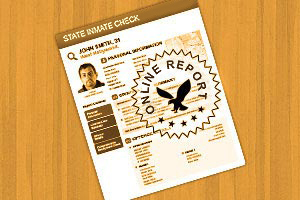Ohio Public Records
Ohio State Record’s mission is to aid in giving every person the right to detect, obtain, preview, and examine state public records, thereby ensuring residents of the state of Ohio are provided secure access in accordance with the Ohio Open Records Law.
The main goal of this website is to enable all members of the general public the right to access Ohio state records regardless of their state country or citizenship status and without having to disclose a reason for their inquiry unless specifically expressed otherwise.
Ohio State Records contains information concerning the following subjects: criminal records, court records, and vital records, including over 99 million public records.
Are Ohio Records Public?
Whether government-generated records in Ohio are public or not depends on the kind of record. Ohio public records, pursuant to Ohio Revised Code 149.43 (A), include records generated or maintained by any public office, including but not limited to the state, a county, a city, a village, a township, or a school. Generally, the majority of the records generated or maintained by these public offices in the course of conducting their affairs are deemed to be public records.
What is Considered Public Information in Ohio?
These public records include:
- Ohio court records
- Public criminal records and criminal history records
- Public arrest records
- Public inmate records
- Public bankruptcy records
- Public sex offender information
Private, protected, and sealed information are exempted from being public records. These include records of adoption proceedings, medical records, and records of trial preparation. Data may be stored as photographs, handwritten documents, recordings, or electronically. Interested persons can make requests to view or obtain copies of an Ohio public record by contacting the record custodian. Alternatively, requestors may conduct a paid or free public data search using the online public records databases maintained by official government agencies or third-party alternatives. In addition, requestors may opt to make a FOIA or public records act request to the appropriate record custodian.
Note: Ohio public records exclude private data of officers in public offices, including the custodian of the records. Private messages and emails are exempted from being court records. Also, preliminary notes and drafts are excluded from public records.
How Do I Find Public Records in Ohio?
Interested persons can view or obtain public records in Ohio by contacting the custodian of the records. The Ohio Revised Code requires that custodians of public records make the records available promptly when requests are made to view or copy the records. The requester would need to determine the information they seek and appropriately describe the record. This is because a clear description of the record is necessary to enable the custodian of the records to find the record. If the custodian cannot reasonably find the record, they may decline the request. The record can be identified with unique information such as the subject’s name, case number if it is a court record, and other identifying information.
Requesters will also need to contact the custodian of the records. The custodian of the records depends on the record being sought. Ohio Vital Records are maintained by the Ohio Department of Health. Persons interested in Ohio death records and Ohio divorce records can contact the Department of Health to obtain the records. Court records are maintained by the clerks of the court. Therefore, the person seeking the record would need to find out the official or office in charge of maintaining and providing access to the records. Similarly, criminal records are maintained by the state police department and divorce records by the county clerks' office.
After identifying the custodian of the records, the next step is to make a request for the records or a copy of the records. It is advisable for requesters to make their requests in writing even though this is not necessary. The Ohio Court of Claims provides a sample public request form. Generally, the request should contain:
- The kind of record being sought
- The requester’s contact information
- A description of the record
- The form the record should be supplied in, whether electronic or physical copies
- Any other information that would aid the custodian in finding the record
The requester may submit the request by mail or in person. The requester may also be required to pay fees for data extraction, making copies, or delivery.
Using Third-Party Sites to Find Public Records in Ohio
City Records
Public city records may also be accessible from third-party websites. These non-government platforms come with intuitive tools that allow for expansive searches. Record seekers may either opt to use these tools to search for a specific record or multiple records. However, users will need to provide enough information to assist with the search such as:
- The name of the subject involved in the record (subject must be older than 18 or not juvenile)
- The address of the requestor
- A case number or file number (if known)
- The location of the document or person involved
- The last known or current address of the registrant
Third-party sites are not sponsored by government agencies. Because of this, record availability and results may vary.
Public Records
Public records can also be accessed from third-party websites. These third-party public records aggregate websites offer search services that are non-geographically limited, making the search result expansive and typically straightforward. However, users will need to provide enough information to assist with the search, such as:
- The name of the subject involved in the record as long as the subject is not a juvenile
- The last known or location of the record subject
Third-party public records search websites are not government-sponsored services. Therefore, the availability and accuracy of results can vary.
How Do I Look Up Public Records in Ohio for Free?
Whether or not a public record in Ohio can be obtained for free depends on the record, the custodian of the record, and how the request is made. Free public records in Ohio are available in some cases. Merely viewing the records at the physical location of the custodian does not attract any charges. This may be done for arrest records and incident reports with police departments and court records with courthouses. Agencies that provide the option to physically view the records usually have lobbies and terminals that interested persons can use to conduct free public records search during business hours. Electronic copies of some records can also be obtained. Some county clerks maintain websites that can be used to search for public records. Sex offender and inmate information can also be obtained online at no cost. However, obtaining copies of the records or having the records sent by mail will attract fees. Offices with public terminals include the county clerks office, the court clerks office as well as the county recorder’s office. Selected third-party aggregate sites also offer free public records.
Ohio started creating public records in 1789, and these records usually contain information from 88 counties, thereby ensuring Ohio abides by the commitment of the United States of America to remain a fair and just society for all. Furthermore, as digitization becomes more standard - a process that began in the late 80s - these records are increasingly available online through third-party and governmental websites.




